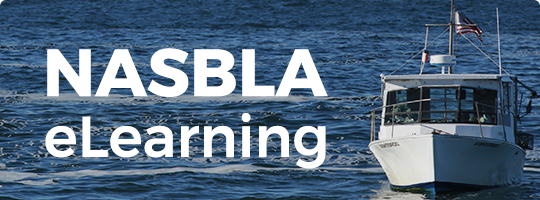GPS Forensics
Imagine if you could go back in time and place a tracking device on the vehicle or vessel of your suspect, or even place it on the suspect himself. The tracker could capture and store your suspect’s travels, recording where he went, what time, how fast, and how long he stayed. Boaters, anglers, and hunters across America are buying and using tracking devices every day – in the form of GPS units. Modern GPS devices are capable of storing vast amounts of navigational data in the form of maps, track lines, waypoints, routes, and more. Some of this data is captured and stored automatically by the device whenever it is in use. Other data is manually entered by the GPS user. In the hands of a law enforcement investigator, the data can be used as devastating evidence in a courtroom setting.
This introduction to GPS forensics will provide law enforcement officers with a foundation for recovering evidence from GPS devices and preparing it for courtroom presentation. The class will take students through the history of the GPS system, describe the components of the system, and explain the basic concepts of how GPS works. Students will learn about the wide variety of devices that are on the market and the types of data the devices might hold. They will learn the best practices for securing a GPS for examination and the legal guidelines that must be followed. Finally, students will learn about the tools and software needed to conduct a basic examination of a GPS, and how to present the results.

Paul Alber
Officer, Palm Beach Police Department
In 1993, after graduating with a bachelor’s degree from Florida State University, Paul Alber started his law enforcement career with the Florida Fish and Wildlife Conservation Commission. He worked with local, state and federal agencies on a wide range of cases, from traffic citations to drug trafficking. He also became a field training officer and an agency instructor. An avid outdoorsman, Paul is often out fishing and diving. When his personal list of coordinates for reefs, wrecks, ledges grew into the hundreds, he began experimenting with various LORAN and GPS computer programs to manage his list of fishing spots and to plan offshore trips. He quickly realized that some of the software he was using had significant law enforcement applications and started using his knowledge of marine electronics, particularly GPS units, in boat crash reconstructions and marine fisheries enforcement. As his skills grew, other agencies began reaching out to him for assistance. In 2006, he joined the Palm Beach Police Department, where he was quickly assigned to the department’s marine unit. He now splits his time, patrolling both the streets of Palm Beach and the waters of South Florida. He routinely assists other agencies, particularly the Department of Homeland Security, providing expert assistance with GPS forensic analysis on a variety of cases.

Raul “Skip” Camejo
Captain, Connecticut State Environmental Conservation Police
Raul “Skip” Camejo, a captain with the Connecticut State Environmental Conservation Police (En-Con Police), has served the EnCon Police for 19 years and is currently in command of the Western District. His previous assignments include administrative captain in the Hartford headquarters, training sergeant, and field officer. Before joining the EnCon Police, Camejo, who earned a bachelor of arts degree in criminal justice from Charter Oak State College, served 19½ years as a municipal police officer. Camejo is a past president of the Northeast Conservation Law Enforcement Chiefs Association and a member of NASBLA’s Enforcement Training Techniques and Technology subcommittee.


